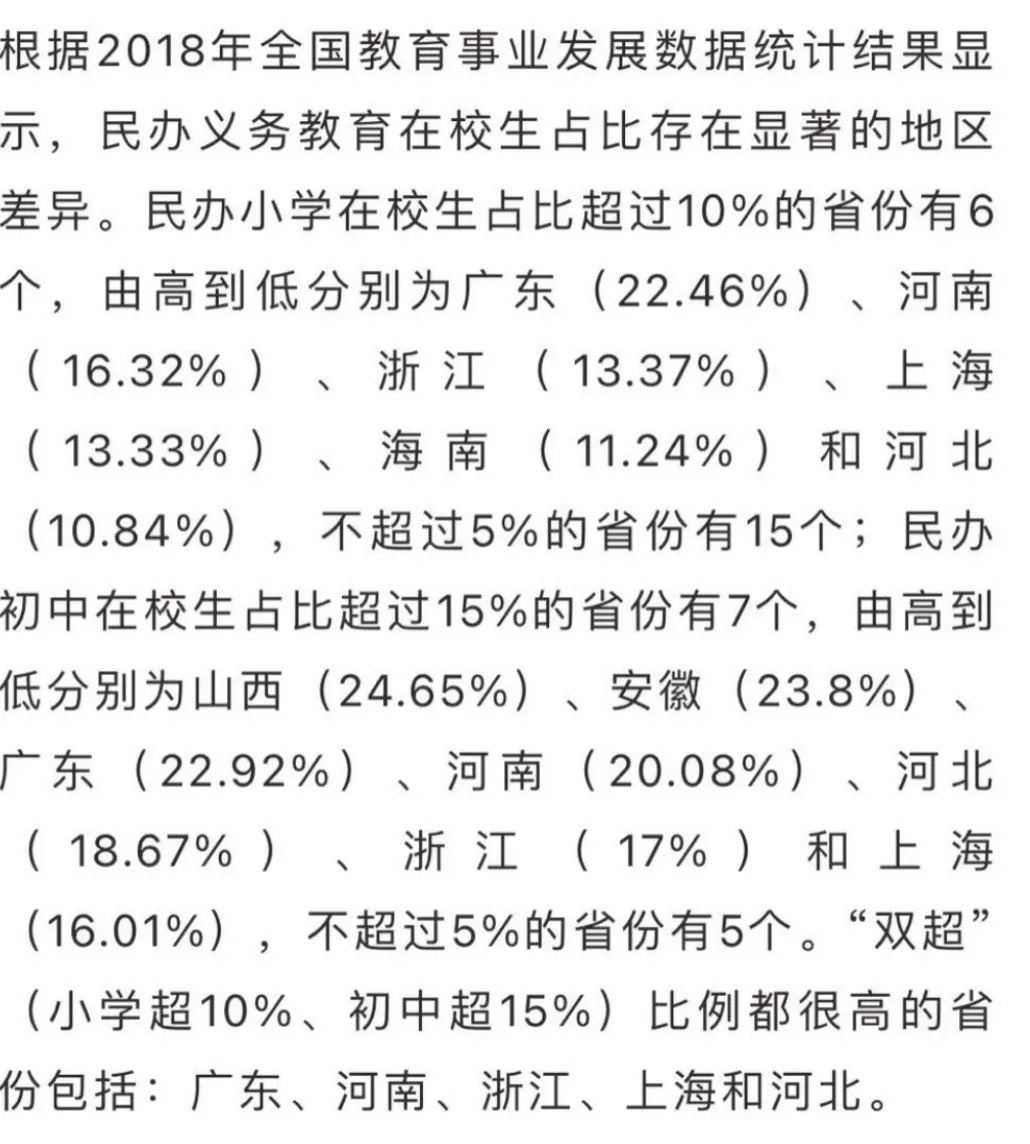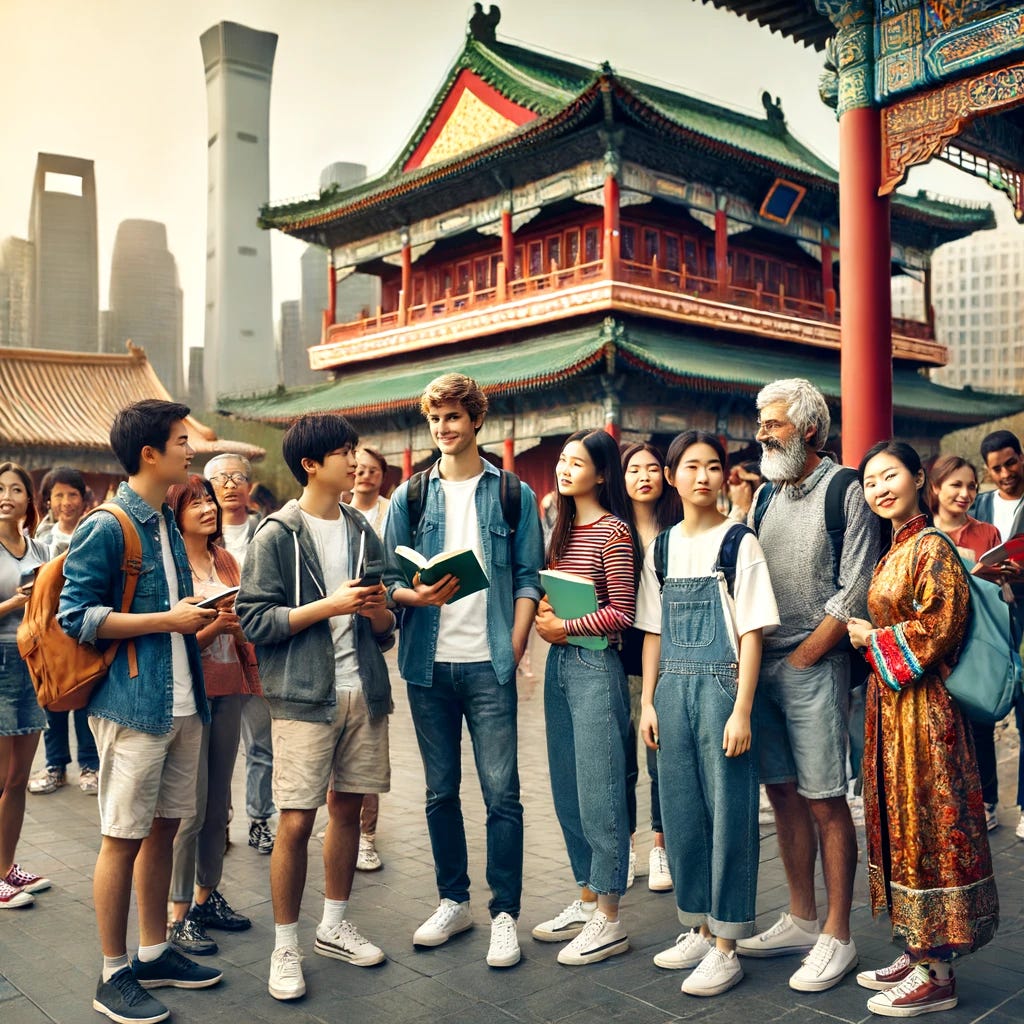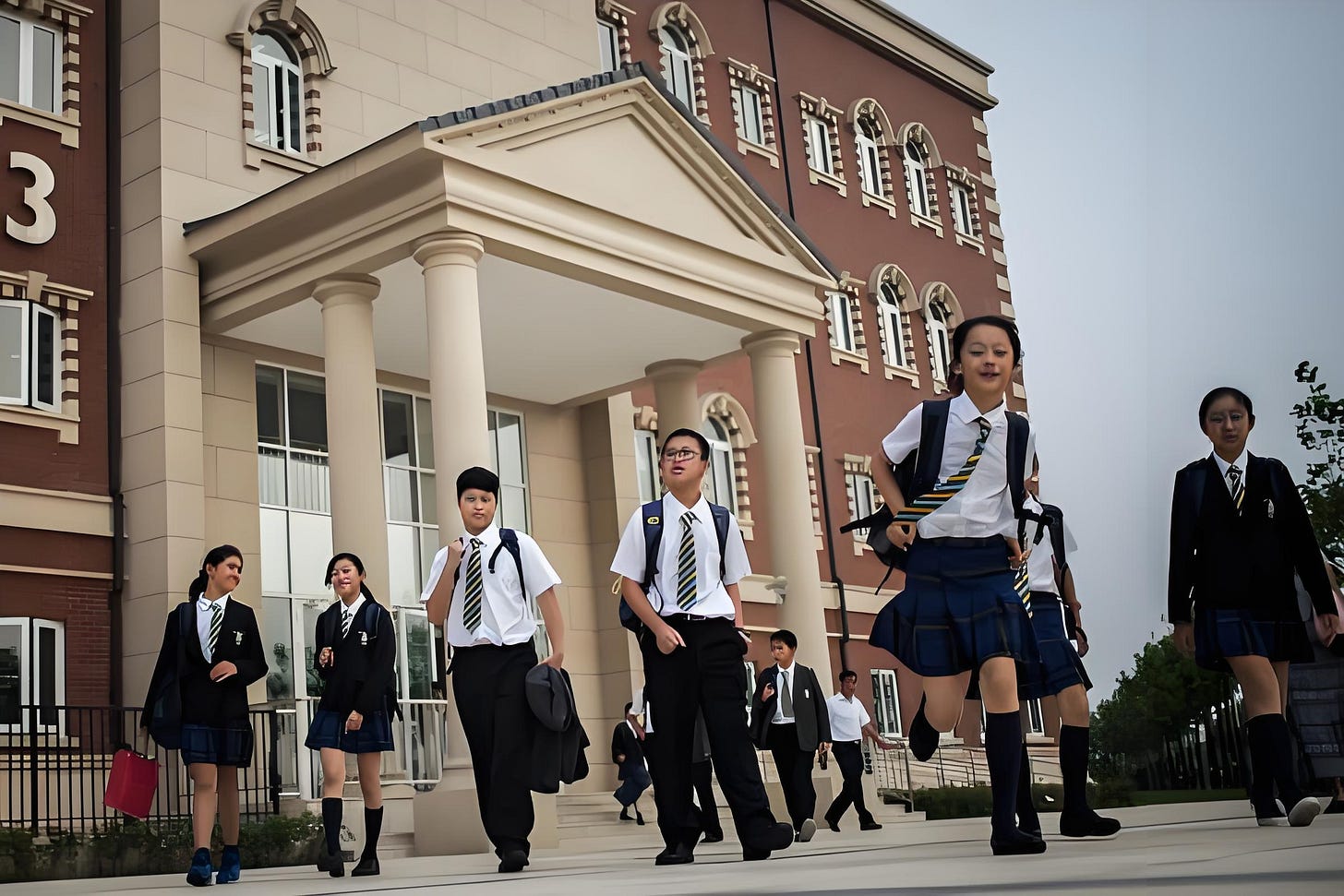Parents of International School Students in China, This Time, Are Alarmed
Documents concerning the involvement of public schools in private education have emerged.
The introduction of the "double reduction" policy initially seemed beneficial for parents of international school students.
In Shanghai and Beijing, some primary school students are experiencing a reduction in English language education. In contrast, international schools are markedly different, with certified foreign teachers ensuring uninterrupted English learning. Combined with an abundance of high-quality extracurricular resources, the path to nurturing elite young talents appears promising.
Parents who had already secured placements for their children in international schools felt reassured, believing they had secured a valuable ticket and could relax.
However, when they began the enrollment process and inquired about admissions in August, they discovered that their previously secured placements were invalid. Many schools had quietly closed their doors.
This unexpected turn of events has left parents of international school students in a state of panic.
This matter began with the joint issuance of the "Notice on Regulating Public Schools Hosting or Participating in Private Compulsory Education Schools" by eight departments, including the Ministry of Education, the Central Organization Office, and the National Development and Reform Commission.
The notice primarily targets schools that are publicly funded but participate in private education, requiring certain types of privately run schools established by public institutions to revert to public status. It also mandates that public schools cannot use group-run operations or brand licensing as a means to covertly run private compulsory education schools.
At first glance, this seems unrelated to international schools. Some experts even suggest that the new policy benefits parents of private schools. For example, converting private schools to high-quality public schools allows more children to access free educational resources. Moreover, integrating high-quality private schools into district school zoning significantly increases the chances for local students to enter these prestigious schools, even with multi-school zoning.
Even if high-quality private schools become more balanced in the future, it doesn't affect families spending hundreds of thousands of yuan annually on international schools. Different schools are meant to cater to different educational needs, and private schools that are not semi-public are sure to have their space.
However, this is merely wishful thinking on the part of the parents, as the policy does not exist in isolation.
Few might have noticed that earlier, educational departments in Hunan, Jiangsu, Sichuan, and other provinces had successively issued documents planning to reduce the proportion of private compulsory education within their jurisdictions. For instance, they aim to reduce the number of students in private primary and secondary schools to less than 5% of the total student population at the compulsory education level.
What does this mean?
It means that if the proportion of students in private (including private bilingual international) schools and public schools exceeds the standard, the number of admissions will be directly cut.
Many may not grasp the significance of this figure, thinking that the education they receive is niche and doesn’t exceed 5%. However, they would be mistaken. According to public education data from 2018, there were six provinces where the proportion of private primary schools exceeded 10%, with Guangdong, bolstered by Shenzhen, reaching a staggering 22.46%.
In this context, reducing the number of students in private schools to 5% means that nearly 17% of families will have to return to the public system. This process will undoubtedly start with the recovery of publicly affiliated private schools, but what happens in areas that don’t have this 17% of publicly affiliated private schools?
Ultimately, it will lead to reductions wherever possible, and international schools are unlikely to escape unscathed from this cut.
Anxiety has begun to spread among parents of students in international schools, with some even fearing that international schools might face a shutdown similar to that of certain institutions. They are urgently seeking answers to pressing questions:
What will happen in the future? Where should their children go to school?
In Shanghai, international schools have become quite sensitive to changes due to the ongoing curriculum reforms in private schools and the adjustments to the simultaneous enrollment policies for public and private schools over the past few years. However, both schools and parents have developed a strong capacity to adapt, bolstered by the resilience and inclusivity of an international city. This adaptability has allowed parents to manage their anxiety more effectively.
In contrast, the anxiety levels among parents in Henan and Guangzhou are significantly higher. This is because international schools in these regions are relatively weaker, or the proportion of international education exceeds the standard, making them more affected by the 5% private education policy.
Since the onset of the pandemic, even parents who were once firmly committed to the international education path have begun to waver. Many are now considering the merits of not sending their children abroad or delaying their departure, finding that staying in the country might also be a good option.
In theory, the transition of private schools to public status should be a positive development for parents of international school students. As experts have analyzed, not only would tuition fees be reduced, but students could also directly transfer to public schools, fulfilling their parents' wishes. So, what is there to be anxious about?
There are two main reasons for this concern.
First, the immediate impact of the policy adjustment is that parents now have to make educational decisions earlier. Previously, choosing a school meant deciding on a direction—opting for either an international or public school. Many parents hoped for the flexibility to choose both, avoiding the lottery system of high-quality public schools.
Now, there's a dilemma. Before the "public and private simultaneous enrollment" policy, international school admissions were based on interviews; afterward, it depends on a lottery system, just like public schools. This shift means that luck plays a significant role, leading to unexpected outcomes, such as stories of less academically inclined students securing spots in prestigious schools in Shanghai.、
In Beijing, if luck is needed, why not try for a public school? As a result, even properties in sought-after school districts in Xicheng are losing their appeal.
Currently, in some areas, to meet the 5% target, international school enrollment quotas are being significantly reduced—from 100 to 50, for example. Parents who were undecided about whether to pursue an international or domestic education and wanted to try international schools first are now panicking.
If they still choose an international school, it could mean their child does not have an official student status, becoming an "out-of-school" student, which is unacceptable for parents.
On the other hand, choosing a public school now means facing an unexpected policy shift, with their child only able to join mid-term. Gaining entry to a high-quality public school is unlikely. After all, if these parents had a chance to get into a top public school, they might not have chosen an international school in the first place.
The second reason for the anxiety among parents is their mindset. While many parents may not be sensitive about choosing between public and private schools, the distinction between "having a choice" and "not having a choice" is crucial for them.
For parents of international school students, education represents a form of choice. Even if the choices are limited, even if it comes down to two options, even if there is no perfect school, and even if the educational outcomes are less than ideal, it is still a choice. This choice embodies the parents' free will, rather than being a result of a standardized selection process.
The inability to choose education is hard to accept for elite parents planning to send their children to international schools.
One international school parent once mentioned that during the previous semester, when schools were closed due to the pandemic, international schools found ways to organize activities and performances—something unimaginable in public schools.
She felt that her decision was justified, believing that spending extra money for additional educational benefits was worthwhile.
However, now she worries that this money might not guarantee the same value. She feels anxious, imagining that her child's future opportunities might be limited, fearing they could be diverted to vocational schools or face restrictions on studying abroad.
While the transition from private to public schools might not be entirely negative, it certainly does not meet her expectations. The lack of differentiated educational resources and the uncertainty in the process and outcomes of education could even lead to a decline in social status.
No one likes unpredictable, uncertain, ambiguous, and complex situations, which is why parents of international school students are feeling very anxious.







